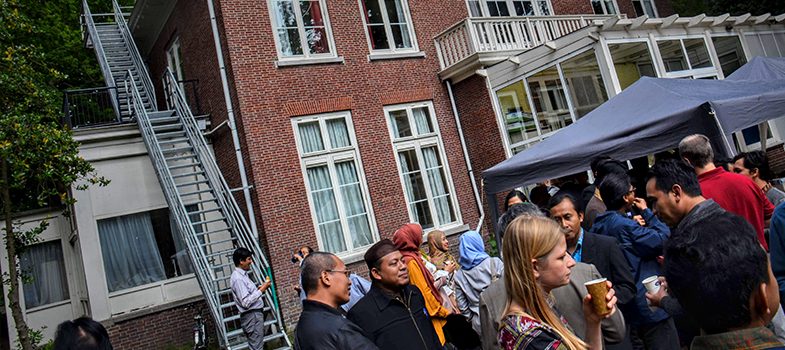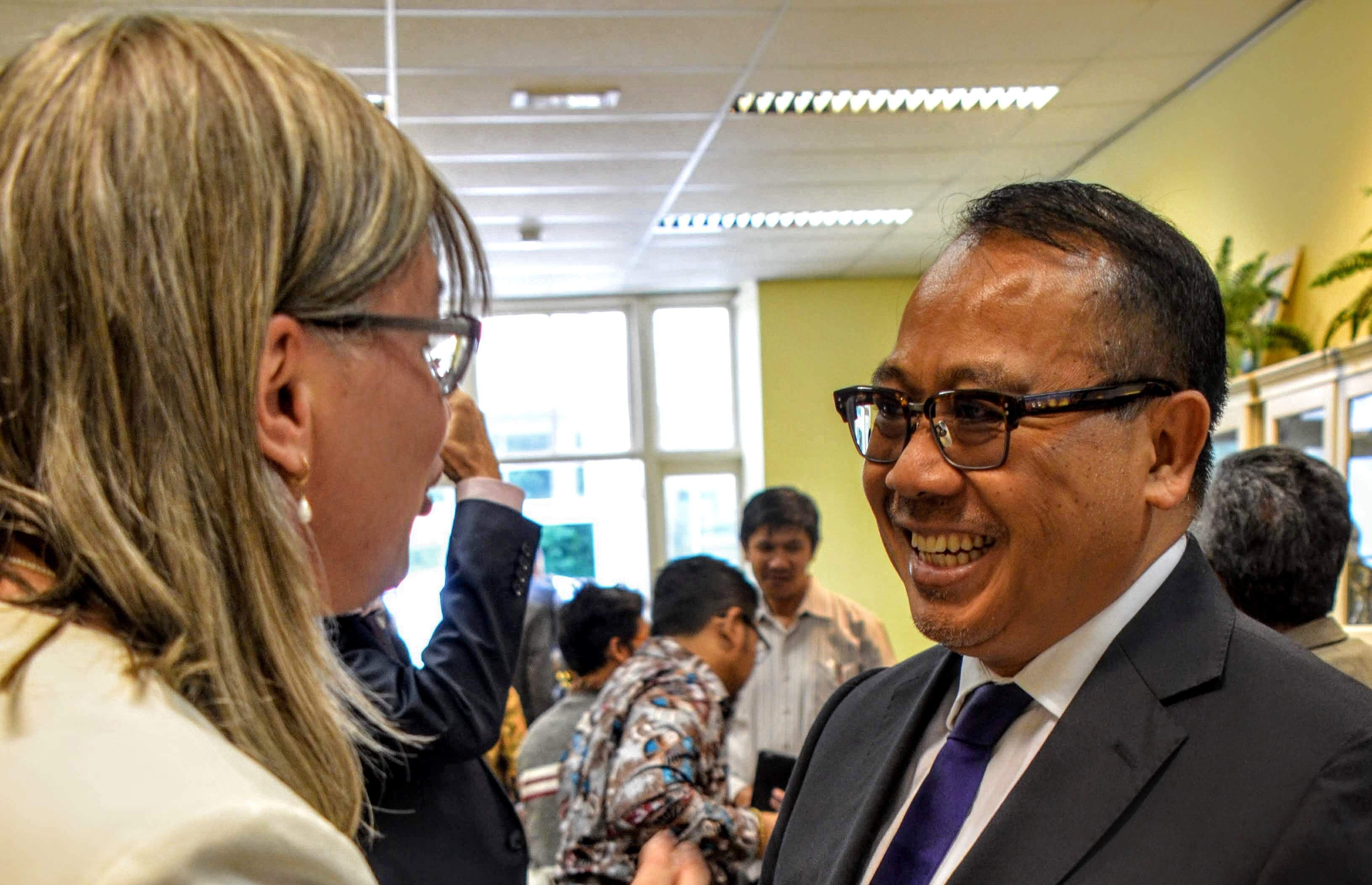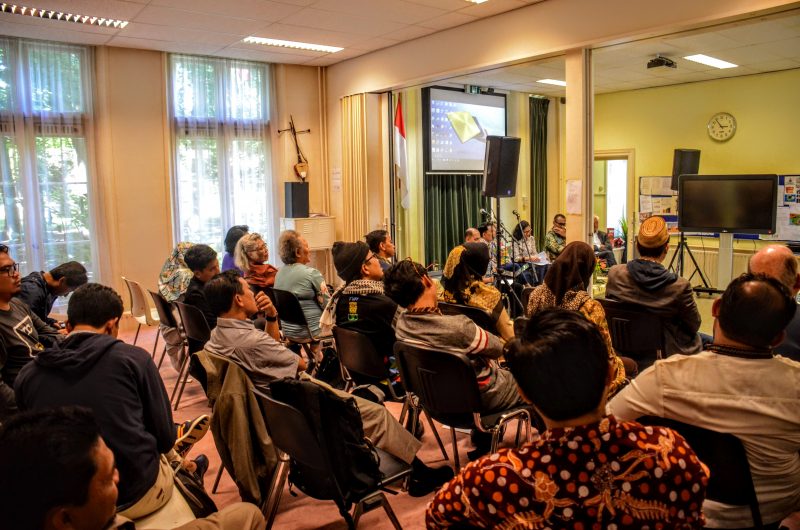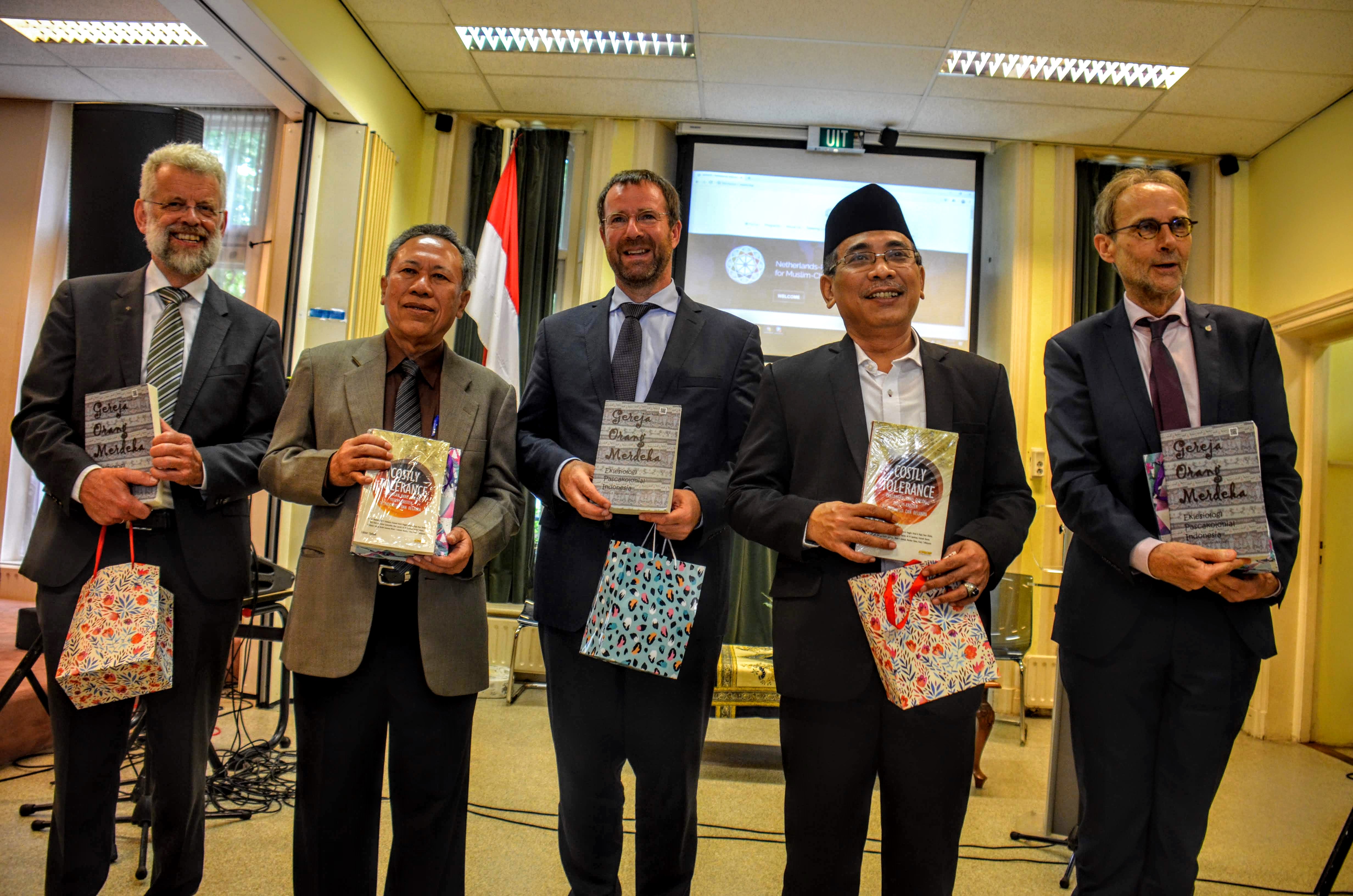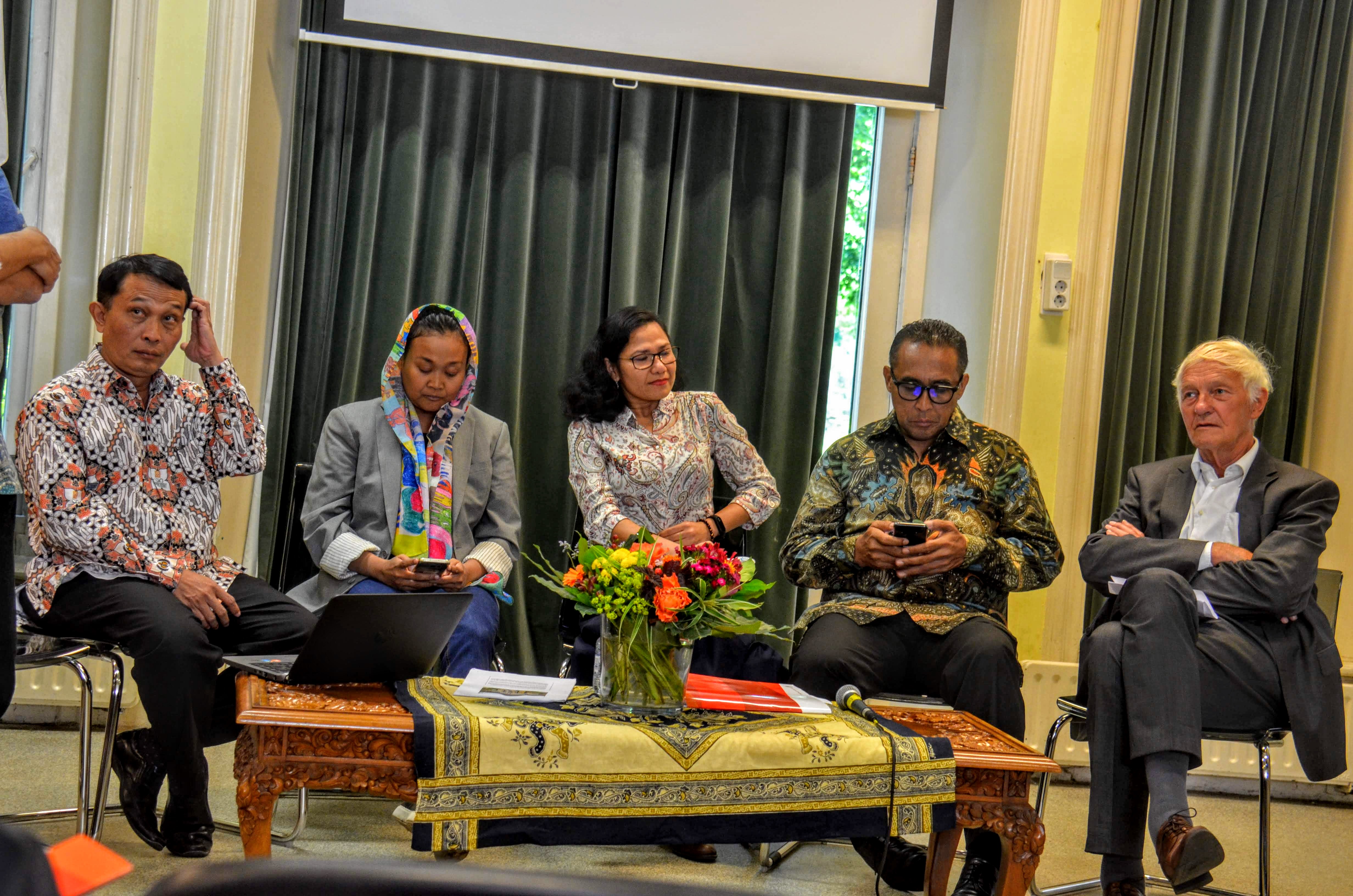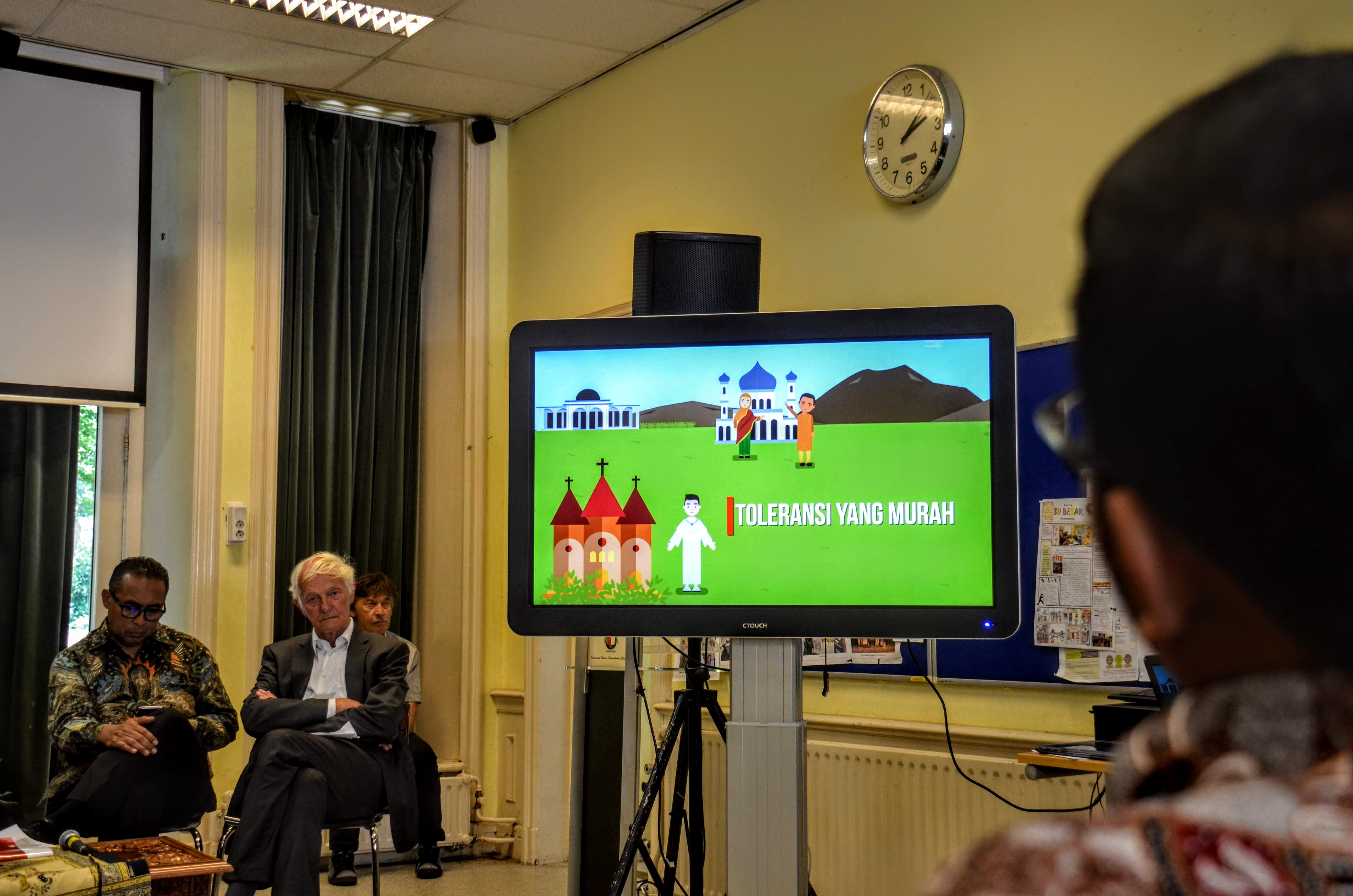The 6th Interfaith Dialogue
Promoting ‘costly’ tolerance: challenges for states and religious communities
June Beckx
Near to 100 people gathered in Wassenaar on 20 June 2019, to attend the 6th International Dialogue, in succession of the 5th International Dialogue in Nijmegen in 2017. In the latter event (2017), it was concluded that democratic and inclusive societies can be built through dialogue. Nevertheless, anno 2019, it may seem that we are further away from dialogue than ever before: horrible attacks on mosques (New Zealand) and churches (Sri Lanka) easily diminish the willingness to cooperate with “the others”. At the same time, such developments show the urgency of efforts to break the spiral of violence, suffering and hatred. This conference in which the role of States and religious communities are challenged, shows one of these efforts.
Chaired by Welmoet Boender, Lecturer Islamic Studies at the VU Amsterdam, the conference was organized in cooperation with the Indonesian Embassy in The Netherlands and held at the premises of the Indonesian School The Hague. Representing the NICMCR Steering Committee, Corrie v.d. Ven, Program Manager of Kerk in Actie of the Protestant Church the Netherlands, opened the conference.
In his welcome speech, the Ambassador of Indonesia, I Gusti Agung Wesaka Puja, responded to the situation of today, where dialogue is essential to promote tolerance. Reciting Toynbee, he emphasized the importance of building confidence and trust as the worlds’ greatest need; only mutual confidence can defeat mistrust between the several layers of society. Religion, he argued, promotes harmony and dialogue between cultures and should therefore be a permanent element of future diplomacy. For instance, the lack of western understanding to lesser stereotypes and assumptions that Islam is a religion of violence, underline the necessity to bridge these differences. The real struggle is between those with vested interests and social justice.
Keynote speaker Syafiq Mughni, Special Envoy of the President for Interfaith and Inter-Civilization Dialogue and Cooperation, elaborated on the theme ‘Building interreligious harmony, the Indonesian Experience’. In Indonesia, he said, many factors contribute to interreligious harmony in particular and national integration in general. Nevertheless, he admitted that some measures like the law on religious blasphemy remains controversial as to if it is instrumental in preventing religious conflict or instead if it is misused for criminalizing critics. Similar is the sponsoring of the Forum Kerukunan Antar Umat Beragama (Interreligious Harmony Forum). In this way, interreligious dialogue can function as top-down political initiative, as was the case of a program called ‘Musyawarah Antar Agama’ (Interreligious Dialogue) in the era of Suharto, where religion was used mostly to support the ruling power’s agenda. An innovative paradigm shift in the governmental approach occurred with allowing attempts of NGO’s around 1980, like Interfidei (Institute for Interfaith Dialogue) or Madia (Masyarakat Dialog Antar Agama: Society for Interreligious Dialogue), changing the level of dialogue to everyday life. Syafiq Mughni cautions for secular approaches in Countering Violent Extremism (CVE) and Preventing Violent Extremism (PVE), which started to become popular after the tragedy of 9/11. Many paradoxically allow secular people to manage religious issues. Without faith-based intervention, they will lose the important thrust of community participation.
In response, Leo Koffeman, Professor Emiritus of Church Polity and Ecumenism at the PThU, whom, together with the Vice Rector of UIN Yogya, Sahiron Syamsuddin, initiated the first International Conference on Costly Tolerance in Yogya in 2015, mentioned the dilemma every State is facing, not only with regards to issues like religious violence, but in a wider scope, dealing with possibly dangerous tensions in society. He affirmed the skepticism of the previous speaker about the law on religious blasphemy, which applies also to the Dutch law on hate speech: it remains controversial, because it can easily be misused for criminalizing unfavorable voices. Only with a clear separation of the independent powers in the State which guarantees real judicial independence, can we expect a proper balance between safety and freedom of citizens. In this context, he adds, the State’s neutrality is appealed to. Compensatory neutrality, which compensates structural inequalities of cultural, religious or economic character, fits best in pluralistic societies like in Indonesia and the Netherlands. That goes for Muslims in the Netherlands as well as for Christians in Indonesia, not only in terms of funding, but also paying the costs when such policies will meet heavy criticism. Referring to the concept of a secular approach, Koffeman fully agrees with Syafiq Mughni that this will not work effectively without a faith-based approach. In the Netherlands, the government’s funding of private schools, including Christian and Muslim schools is challenged by Dutch political leaders who plead in favor of a ‘neutral´ public education. The latter, however, underestimates the responsibility and the positive potential religion has in terms of empowering children and youth towards participating in civil society from a consistent world view.
This statement was affirmed by Klaus de Rijk, Senior Policy Advisor at the Dutch Ministry of Foreign Affairs. After conducting thorough research internally, the Ministry became aware of the importance of religion in foreign policy. He referred to the letter of the Ministry of Foreign Affairs and the Ministry of Foreign Trade and Development Cooperation, in which they admitted that diplomacy towards countries and regions will become more effective with thorough knowledge of their religious history and that religious literacy is an important quality for policy makers and diplomats. In this regard, the following steps are among others, imbedding religious literacy as standard element in the training of beginning policy staff members at the Ministry, refresher courses for more experienced staff members alongside general courses in regular lunch lectures and seminars. Given the importance that the State attaches to freedom of religion and belief, the position for a Special Envoy has been duly created for this theme. The government has also made the decision to organize an international conference in the Netherlands on combating religious intolerance on 18 November 2019 in the context of the “Istanbul Process”: the mechanism for dialogue on the application of UN Human Rights Council Resolution 16/18 with reference to this subject.
In answering the questions raised by the audience about the ineffectiveness of inter alia, the blasphemy law or law on hate speech, the decisive voices of political parties on the role of religion and the (im)partiality of the Government. Yahya Staquf argued that Indonesia needs reform. The political interest for intolerance (for instance from FPI, HTI, PKS) he claims, must be countered. Organizations like NU and Muhammadiyah, who believe in tolerance and others, who have common views and ideals on tolerance, must consolidate together to combat their views and actions.
In his earlier speech, Yahya Staquf, General Secretary of the NU Supreme Council, already cautioned for the unaffordable level of animosity and conflict between religions, which is now threatenening civilizations. Therefore, we continuously need dialogue towards tolerance.
Now, with political borders becoming more irrelevant, severe conflicts are spreading worldwide. We cannot allow ourselves to stay in our own comfort zone, when a whole human civilization is at stake. When we, as Indonesian Muslims discriminate our Christian fellowmen, we create an ensuing resentment towards Islam by Christians. This not only applies in the context of our own (Indonesian) social environment, but will reverberate worldwide throughout the global context.
States, FBO’s and CSO’s acknowledge the political dimension of religious intolerance. If we fight for (costly) tolerance, we must be prepared to pay the costs, not only financially, but we have to go further: we have to endeavor to bring up the costs of reforming our own perception on religion. That is, to reform our own perception on Islam. In Indonesia, he continues, we deal with the impact caused by the endless catastrophy in the Middle East, ideals are challenged by the actual dynamics in society. Examples of ISIS internationally, and DI, Komando Jihad, both the cases of Ahok and the presidential elections in Indonesia, show that political actors misuse religion for their own interests. In the last case, the NU explicitly sided with one candidate, not because of being in favour of said candidate, but because of the threat posed by the circles supporting the other candidate. With this commitment, NU had actually hurt itself and that was the cost we had to pay. This is why we need actors who challenge such threats. This shows the urgent need for dialogue such as this: among religious leaders, among academics, among civil society actors, but we need more: we need dialogue among politicians.
At the panel following the informative sessions, Maria Nabubhoga, PhD student at the Radboud University, revealed that Indonesian immigrants in The Netherlands, in general feel that this country is more tolerant than Indonesia. Even LGBT- oriented Indonesians feel more safe. Nevertheless, tolerance is felt more in the sense of leaving the other alone. Dialogue therefore is held more ‘between the pillars’, the question remains if we can talk about ‘trust’, despite the rather ‘free’ climate we are in.
Dewi Candraningrum, Artist and Lecturer at the Muhammadiyah University, Surakarta passionately pleaded for the fate of girls in many places in Indonesia: 15% marry below the age of 16 and 1% even below14. Who can protect our daughters? Many factors relate to religion, especially the orthodox. In his first term, the president was unable to stop that. On the other side, there are signs of hope: in 2008 Yogya succeeded to open a pesantren for transgender people. To name other figures: Indonesia has the 2nd highest maternal mortality rate in the world. 85% of girls terminate their education when entering marriage.
Sahiron Syamsuddin, Vice Rector of UIN Sunan Kalijaga, Yogyakarta, distinguished between the lower level versus the higher level of tolerance. At the lower level, he states, one is aware of the other’s belief but one tends to ignore it. At the higher level, one goes one step further and recognizes the true aspects of the other’s religion. In Indonesia however, the lower level is most often the case, the tendency is to condemn other religions or beliefs. The remedy is multi-religious education. Answering the question: ‘When was it costly for you to be tolerant?’, he memorized the case of Jakarta’s former governor Ahok. Inspired by verses on justice in the Quran, as expert witness, he testified during the court hearings in favour to the latter as not being guilty of blasphemy. The subsequent accusation by religious extremists claiming that he was supporting Christians upon his testimony, felt utterly painful. They even declared that Muslims who defend Christian heretics are not worthy to receive Islamic funeral prayers at the time of their death.
Another painful memory in answering the same question came from Alle Hoekema, Associate Professor Emiritus at the VU Amsterdam. It was at the time when he decided to contact a world war 2 criminal, who was a member of his church community and who had fled to Canada. He had a very uneasy feeling and even struggled on how he should write to this man. “Should I open with Dear Brother or with just Sir?” he asked himself. The question here was at what point somebody ceases to be a brother in the faith? Should we be tolerant to a criminal, a war criminal in this case? Or to a terrorist or a child abuser, who is a brother in the faith? In his opinion, FBO’s have a different duty than the State. We have experienced these kinds of moral battles towards our brothers or sisters who in the Netherlands after 1945, were ‘on the wrong side’; you might have had those (people) in Indonesia after 1965.
Jacklevyn Manuputty, Peace Activist and Assistant to the President’s Special Envoy, who ran peace campaigns ever since 1998, when the violence at the Molucca’s broke out and escalated until 2003, announced a program of collection of sermons based on common social challenges such as HIV-Aids, child abuse and corruption which had occurred right after the conflict and putting each in dichotomy. In conflicts, he states, all parties are equally fragile. Interreligious dialogue is therefore not only to foster harmony but should aim at social transformation. Theological matters come at the very end. It is like eating porridge, he argues: starting with the least ‘hot’ parts, you slowly work towards the centre. Then all layers can be dealt with in a more peaceful setting.
Gé Speelman, Assistant Professor at the PThU, summarized the findings of the conference by discerning the responsibilities of States and Non-States. At the judicial and political level, tolerance demands inclusivity. At the individual and community level, tolerance means that everybody feels confident and at home in his own environment. The answer of religion to tolerance is love. She concludes that ‘perfect love drives out fear’. People oppose each other not because of hate, but fear, fear of losing their values.
